Head-To-Head: Samsung Galaxy S9 Vs. Apple iPhone 8 Plus
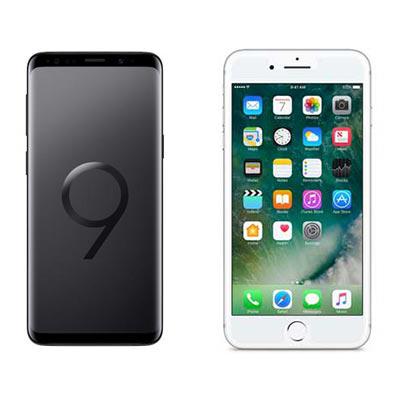
Face Off
While Apple's iPhone X has gotten plenty of publicity for its redesigned display, the iPhone 8 Plus remains popular for its large screen size and dual-camera system. Now, Samsung has a new challenger to the iPhone lineup, the Galaxy S9. For those who are open to either an Android Galaxy phone or one of the latest iPhones, which of the two is a better fit? In the following slides, the CRN Test Center lays out the differences in specs and price for the Samsung Galaxy S9 vs. Apple's iPhone 8 Plus.
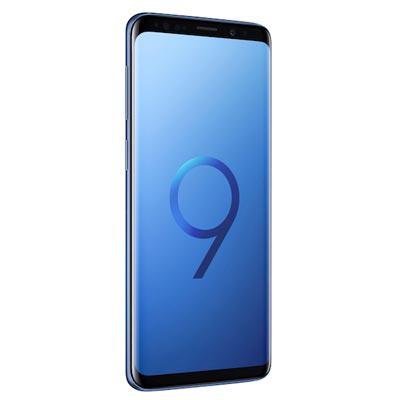
Display
The Galaxy S9 features the larger display of the two phones, at 5.8 inches, versus the 5.5-inch screen size of the iPhone 8 Plus. Apple sticks to the familiar sizable bezels above and below the display area on the iPhone 8 Plus, while Samsung has mostly eliminated the bezel above and below the display of the Galaxy S9 – creating a nearly "edge-to-edge" display design.
For the technology used in the display, the Galaxy S9 has a Super AMOLED display with 2,960 x 1,440 resolution and includes curved glass that tapers over the left and right sides of the phone. Apple sticks with the 1,920 x 1,080 resolution of prior iPhone Plus models on the 8 Plus display. While the display is lower resolution and does not use OLED, Apple's colorful and bright Retina technology goes a long way toward compensating.
Still, based on our tryout of the new Galaxy S models, images and videos do appear more vivid on the S9 display than on the iPhone 8 line.
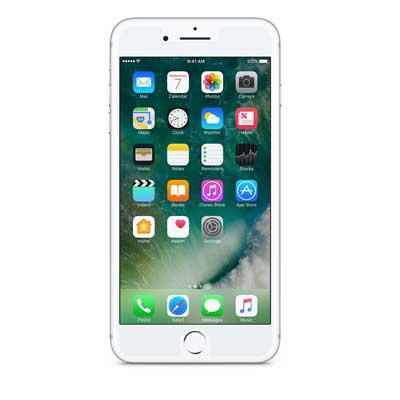
Overall Size
One big plus with the Galaxy S9 is that while it has got a larger screen than the iPhone 8 Plus, the overall size is smaller, thanks to the minimized bezels. The Galaxy S9 measures 5.81 inches x 2.7 inches, equaling about 15.7 square inches on one side. By comparison, the iPhone 8 Plus is roughly 19.2 square inches on one side (6.24 inches x 3.07 inches), or about 22 percent larger.
The iPhone 8 Plus also weighs a bit more, at 0.45 pounds, while the Galaxy S9 weighs 0.36 pounds.
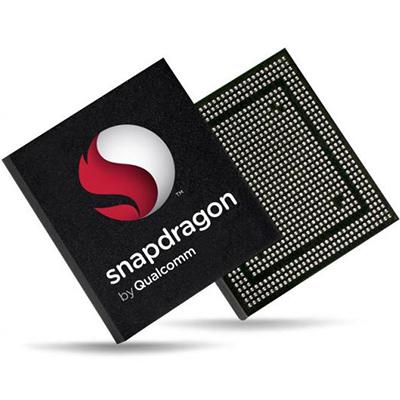
Processor, RAM & Storage
The Galaxy S9 uses Qualcomm's new Snapdragon 845, an eight-core processor with a clock speed of up to 2.8GHz. The A11 Bionic processor powers the iPhone 8 Plus. The six-core chip features two high-performance cores that reportedly have a slower clock speed than the S9, of up to 2.39GHz. The other four cores offer enhanced battery efficiency for less-demanding tasks.
The Galaxy S9 also has more RAM, 4 GB, than the iPhone 8 Plus, which has 3 GB.
Both the Galaxy S9 and iPhone X feature 64 GB of internal storage at the base level. The iPhone X comes in a 256 GB model as well, while Samsung takes a different approach to offering additional storage with the S9--an optional microSD card that can add up to 400 GB of storage space.
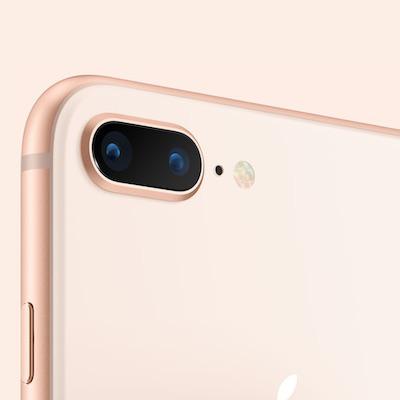
Camera
Samsung has added an array of new capabilities for the camera on the Galaxy S9, but it remains a single-camera setup. That's compared to the dual camera of the iPhone 8 Plus, which features 12-megapixel telephoto and wide-angle cameras with optical image stabilization. The S9 has a 12-megapixel rear camera with optical image stabilization.
The iPhone 8 Plus camera includes capabilities such as "portrait lighting," which improves the lighting of the contours over a subject's face in real time. Apple has also calibrated the phone's cameras for use with augmented-reality apps. The Galaxy S9 camera, meanwhile, offers dual aperture that allows for automatic adjustment to different lighting conditions. Additionally, the S9 camera offers improved slow-motion video and "live focus" for automatically blurring the background in a photo.
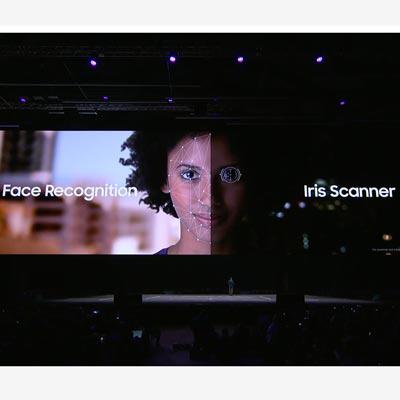
Biometrics
Fingerprint scanning is the only biometric authentication option for the iPhone 8 Plus. On the Galaxy S9, fingerprint scanning is one of three biometric log-in options -- the others being facial recognition and iris scanning. Samsung also offers its new "Intelligent Scan" biometric option, which combines facial recognition and iris scanning for purported faster unlocking.
Also worth noting: The Galaxy S9 fingerprint scanner has been placed directly below the camera on the back of the phone, an improvement over the positioning of the scanner next to the camera on the Galaxy S8.
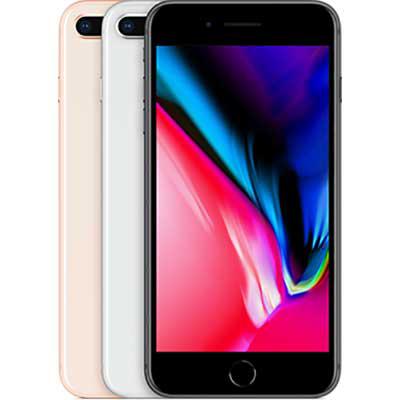
Battery Life & Water Resistance
Samsung isn't providing an estimate on battery life for the Galaxy S9, but it is fair to assume the battery has enough juice for at least 12 hours on LTE, the same as the Galaxy S8. (The 3,000mAh battery size for the S9 is identical to the S8's battery.) Apple promises 13 hours of Internet use on the iPhone 8 Plus.
The Galaxy S9 has the slight advantage on water resistance with a rating of IP68, which suggests the phone should be able to survive waters as deep as 5 feet for up to 30 minutes. The iPhone 8 Plus, which has the lesser rating of IP67, also should withstand a half hour in the water but is only rated for depths of 3.3 feet.
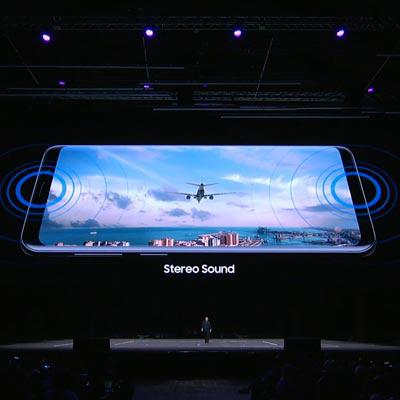
Audio
For starters, Samsung is retaining the standard 3.5mm headphone jack in the Galaxy S9. Apple has famously eliminated the headphone jack on its new iPhone models, and so the iPhone 8 Plus only connects to wired headphones using a Lightning adapter.
Both the iPhone 8 Plus and Galaxy S9 feature stereo speakers. Samsung says it is also offering improved audio quality on the S9 thanks to Dolby Atmos surround sound and special tuning by acoustics expert AKG.
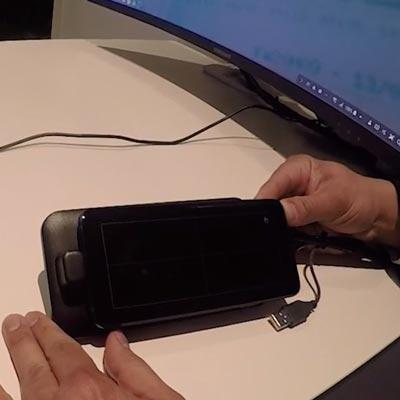
Special Features
Both the iPhone 8 Plus and Galaxy S9 share the ability to charge wirelessly (using Qi induction), through resting the device on a charging pad or mat, which is sold separately.
Samsung is also debuting a second-generation model of the DeX dock -- which gives you an Android desktop experience using your Galaxy S9. The new "DeX Pad" will let users lay their phone flat on the dock instead of propping up the phone, and lets you use the phone itself as a trackpad for navigating the desktop.

Price
Even though Samsung's Galaxy S9 offers an edge-to-edge design and more screen space than Apple's iPhone 8 Plus, it's still priced a noticeable amount lower. An unlocked Galaxy S9 has a price of $720, compared to the $799 starting price for the iPhone 8 Plus. Buying a 400 GB microSD card from SanDisk for the Galaxy S9 will add $230, while choosing the iPhone 8 Plus with 256 GB of storage will cost you $949.
The Samsung Galaxy S9 began shipping in the U.S. on Friday.